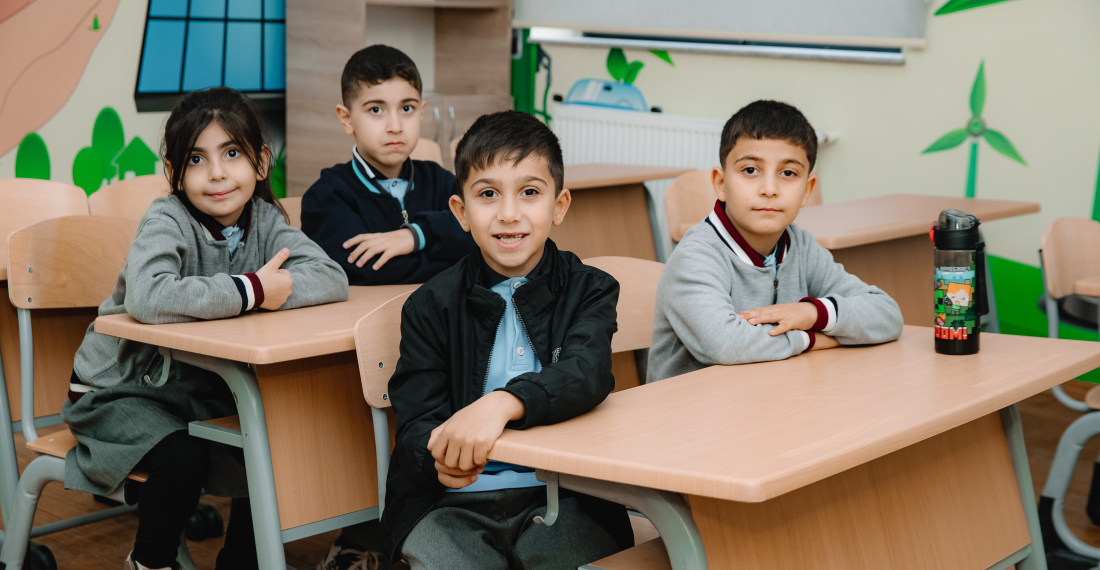When in 2020 Azerbaijan returned to the territories it had lost in the 1991-94 first Karabakh War, it found that the towns and villages that had in Soviet times and before been home to hundreds of thousands of people had been razed to the ground. The challenge of reconstruction was clearly going to be daunting, exacerbated by the fact that hundreds of thousands of landmines had been planted in the territories as part of the Armenian defence strategy.
Three years later, it is finally possible to write a positive story coming out of this human tragedy. At the southernmost tip of Azerbaijan, in a sliver of land nestled between Armenia and Iran, hundreds of Azerbaijani families are returning home after decades of being forcibly displaced by conflict.
The region, called Zangilan, is now part of the East Zangezur Economic District, and an ambitious plan for reconstruction has been put in place. Reconstruction in post conflict regions are not always smooth processes. Often plans take years to come to fruition. But this has not been the case in East Zangezur, where reconstruction is taking place in earnest. First there was the process of demining (less here then in other parts of the territories because the area was far away from the line of contact), and laying down the basic infrastructure. This was soon followed by a process of reconstruction, including a brand new state-of-the-art airport, hotels, municipal facilities, and most importantly, homes.
The process is led by Vahid Hajiyev, the Special Representative of Azerbaijan's President in Jabrayil, Gubadli, and Zangilan districts, which are part of the East Zangezur economic zone. Young, enthusiastic and articulate, Hajiyev has turned what for many was just a far-away dream, into a reality. This can be seen particularly in the village of Aghali where from the ashes of the destruction of war a new reality is emerging.
The resettlement process in Aghali began in 2022, and the village now has a population of 871 persons in 175 households. The community is a termed “a smart village” – smart in the sense that it is designed to serve the needs of its inhabitants.
Speaking on Tuesday (5 December), in Zangilan’s swish new Conference Centre, a few kilometers away from Aghali village, Vahid Hajiyev explained how the process of return is unfolding: "Returning families in Aghali are given access to health care, clean water, clean energy, decent jobs, and other opportunities. There is an Aghali service centre, a school, a kindergarten, a bank, a post office, catering facilities, and so on to make public services more accessible," he said.
When after 2020 Azerbaijan announced its plans for what it termed “the great return”, many were sceptical about its ability to deliver on its grandiose plans. And some wondered, if, even if the buildings are constructed, will they actually be homes for real people and communities. In Aghali Azerbaijan is proving the sceptics wrong. When commonspace.eu visited the village this week it found a lively and vibrant community, a bustling village centre, shops and restaurants that appear to be doing good business, and a well equipped and functioning school where more than a hundred children now take their education.
The village of Aghali is in many ways a pilot project, meant to be one of many. That will continue to be a difficult and costly process. But for the moment Azerbaijan needs to be praised for its achievement.
The right to return is for everyone, regardless of ethnicity
The right of people displaced by conflict to return to their homes in safe and dignified conditions as soon as is possible is enshrined in international humanitarian law. What is happening in Aghali is a visual example of that right being exercised.
The South Caucasus has hundreds of thousands of people displaced by the conflicts that ravaged the region in the last three and half decades. The latest are the hundred thousand Armenians displaced after the fighting in September. Aghali should be a beacon and a symbol for all of them – a hope for a return home. Whenever a displaced person or refugee returns home – be she or he an Armenian or an Azerbaijani, a Georgian or an Ossetian, every person with a humanitarian conscious should rejoice. This work needs to continue until this problem is relegated to history.
Source: This is a comment prepared by the editorial team of commonspace.eu







